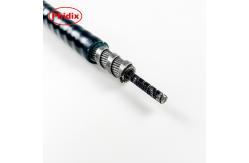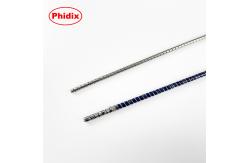inner-wire-core-failure-analysis
|
Why Inner Wire Cores Fail – and How to Prevent ItFlexible control cable systems often seem simple on the surface. But the inner wire core—whether it’s 1x7, 7x7, or 7x19—faces constant mechanical stress that can cause failure over time. At Phidix, we help engineers design systems that resist fatigue, avoid jamming, and deliver long-term reliability. This guide outlines the five most common failure causes, along with preventive design strategies based on industry best practices.  Infographic showing the top 5 causes of inner wire core failure: bending fatigue, buckling, strand loosening, frictional heat, and corrosion 1. Bending Fatigue from Tight RoutingWhat happens: Repeated bending under tight radii weakens outer strands in wire rope cores, especially in 7x7 or 7x19 configurations. Prevention: • Follow minimum bend radius guidelines (D/d ≥ 15:1 recommended) • Use pulley-guided routing where possible • Select more flexible cores for dynamic paths; avoid sharp corners Reference: Cablecraft Design Guide – Flexible Cable Routing Section 2. Compression Deformation from OverloadWhat happens: Push-type actuation with excessive compressive force can cause core buckling or kinking, especially in 1x7 and 1x19 cores. Prevention: • Choose solid core or larger-diameter 1x19 for long push distances • Match stroke distance with routing design • Add inner liner to reduce core friction Use proof-loading methods per CMA Safety Guide to validate cable stiffness 3. Core Loosening or UnravelingWhat happens: Poorly tensioned or overflexed wire cores can twist, creating strand separation or "birdcaging." Prevention: • Use preformed strand constructions (e.g. 7x7 preformed) • Follow correct proof-load tensioning procedures • Avoid field trimming without re-terminating 4. Friction-Induced OverheatingWhat happens: Uncoated wire cores in long housings with frequent actuation may generate heat from friction, damaging liners or seizing the system. Prevention: • Use PTFE-coated inner wires (e.g. 1x19 or 7x7) • Lubricate periodically or select lubricant-embedded liners • Avoid over-tight housing paths Phidix offers factory-lubricated options and PTFE extrusion for core surfaces. 5. Corrosion & Rust-Based LockingWhat happens: Stainless steel cores exposed to marine or chemical environments may still corrode without proper material grade or coatings. Prevention: • Use SUS 316L or marine-grade stainless cores • Avoid removing protective PTFE jacket during installation • Store cables in dry, sealed containers prior to assembly Design Insights from the ExpertsAccording to CMA’s Safety Guide and Cablecraft’s Motion Control Design Guide, ensuring that the wire rope is never loaded beyond 80% of its minimum break strength is critical to preventing core failures. At Phidix, our inner wire core products are manufactured under the IATF 16949 quality management system, which ensures strict process control, consistent tensile properties, and traceability from material to final inspection. This guarantees not just technical compliance—but real-world safety and performance in demanding mechanical control applications. Related Pages• Inner Wire Core Structure Guide • Manufacturing & Quality Capabilities Need Help Troubleshooting?Send us photos or system specs, and our engineers will diagnose the failure mode and recommend a compatible inner core configuration—along with drawings or samples if needed. |
| Product Tags: Inner Wire Core Failure Analysis IATF16949 Inner Wire Core |
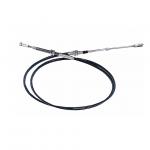
|
Black Push-Pull Cable Assembly with Durable Stainless Steel or Carbon Steel Material |
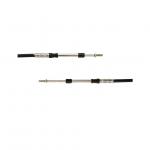
|
Bulkhead Mount Control Cable Assembly Marine Push Pull Cable Boat Steering Cable |
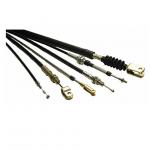
|
Flexibility Mechanical Control Cable Push Pull Control Cable Automotive Control Cable |
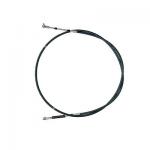
|
Gear Shifter Control Cable Universal Shift Cable Assembly |
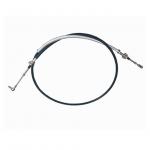
|
Transmission Control Cable Gearshift Control Cable |
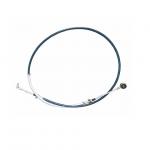
|
Push-Pull Control Cable Push Pull Heavy Duty Universal Control Cable Assembly |

